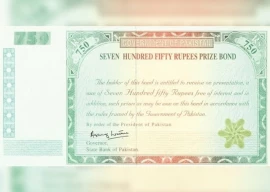
Economists said that the move is likely to pave the way for the withdrawal of exemptions.
However, the Reformed General Sales Tax (RGST) bill and a one-time flood tax apparently do not have the support of major coalition partners and is also being opposed by key opposition party PML-N, which has a strong vote bank in the traders’ community.
Allied parties remained wary of the new tax and major coalition partners like the Muttahida Qaumi Movement (MQM), Awami National Party (ANP) and Jamiat Ulema-i-Islam-Fazl (JUI-F) expressed reservations, insisting that they had not been taken into confidence on the bill.
The measures are designed to broaden the tax base by netting exempted sectors and charging all income groups at a rate of 10 per cent of their payable liability.
The government has also doubled the rate of federal excise duty on all non-essential and luxury imports, including cigarettes and cosmetics. The passage of the bill will enable the government to tax 198 services.
However, Sindh and Punjab still have to sort out differences on the issue of the right to receive revenues on seven services, including ports, export and imports.
Briefing reporters after the cabinet meeting, Finance Minister Dr Abdul Hafeez Shaikh said a salient feature of the Reformed-General Sales Tax (RGST) is that there will be a uniform sales tax rate of 15 per cent, instead of rates ranging between 17 and 26 per cent.
He said the RGST would be implemented from January 1 next year and may enable the government to earn Rs30 billion in the remaining six months of the current fiscal year.
“The government has decided to levy a one-time flood surcharge at the rate of 10 per cent of payable tax on all income groups which will generate Rs28 billion,” said Dr Shaikh.
He said a person earning Rs25,000 per month will pay an additional tax of Rs30 a month while a company earning Rs10 billion annually will pay an additional Rs170 million.
He said by increasing special excise duty rate from one per cent to two per cent, the government would generate additional Rs11 billion in the same period.
Chairman of the Federal Board of Revenue Sohail Ahmad said that the draft legislation has proposed to withdraw tax exemptions on domestic sales of five export-oriented sectors, including garments, leather, surgical goods and support goods. He said the government has also proposed to withdraw tax exemptions on the sale of fertiliser and tractors.
Sharing details of the meeting with the media, Information Minister Qamar Zaman Kaira tried to dispel an impression that the bill was being stormed through parliament.
Meanwhile, political opponents of the government said that the bill was introduced in parliament without consent and they simply could not blindly support it.
There were also fears that at least one federating unit might still not be in favour of RGST because it did not want to allow the federal government’s agencies to collect sales tax on certain services on its behalf.
These apprehensions stemmed from a statement by the Muttahida Qaumi Movement’s (MQM) parliamentary leader in the National Assembly that his party wanted more brainstorming before approving such an important legislation.
Kaira said the introduction of the R-GST would help Pakistan’s bid to put its economy on the path of self-reliance by broadening the tax base.
International lenders have been urging Pakistan to reform its taxation regime and power sector tariffs as a prerequisite for continuing support for the country’s ailing economy.
International donors plan to hold a crucial meeting with Pakistani economic managers from November 14. The government appears to have rushed the tabling of this bill to meet a key demand by members of the Pakistan Development Forum (PDF).
Crackdown on hoarders
The cabinet has also given a free hand to intelligence and law-enforcement agencies to move against millers and wholesalers allegedly involved in hoarding sugar in anticipation to earn more profits.
But Interior Minister Rehman Malik said his agencies would now hunt hoarders and millers would be pushed for kick-starting the crushing season.
“You will not like my boys raiding your premises … so bring sugar stock into the market,” Malik warned hoarders. (WITH ADDITIONAL REPORTING BY SHAHBAZ RANA)
Published in The Express Tribune, November 11th, 2010.
1736942026-0/fizza-(33)1736942026-0-405x300.webp)

1736941045-0/fizza-(32)1736941045-0-165x106.webp)
1736940015-0/BeFunky-collage-(53)1736940015-0-165x106.webp)







1732012115-0/Untitled-design-(14)1732012115-0-270x192.webp)
1736844405-0/Express-Tribune-(2)1736844405-0-270x192.webp)










COMMENTS (8)
Comments are moderated and generally will be posted if they are on-topic and not abusive.
For more information, please see our Comments FAQ